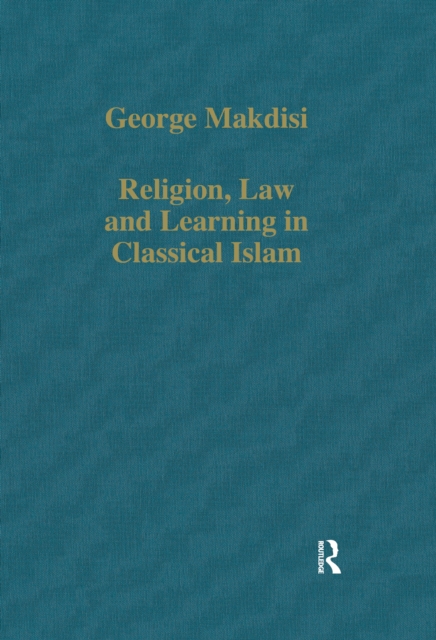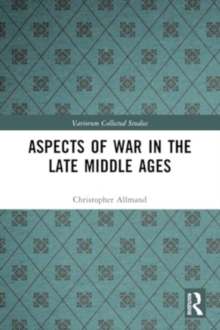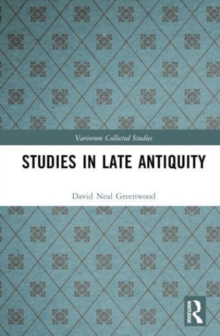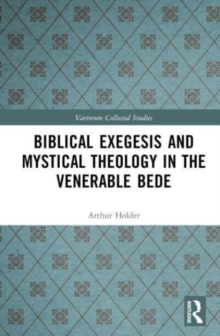
Religion, Law and Learning in Classical Islam PDF
by George Makdisi
Part of the Variorum Collected Studies series
- Information
Description
This second selection of articles by George Makdisi concentrates on the schools of religious thought and legal learning in the medieval Islamic world and their defence of 'orthodoxy'.
The author aims to review and re-assess the implications of the conflict between, first, the 'rationalist' and the 'traditional' theologians (the one accepting the influence of Greek philosophy, the other rejecting it), and then between one of these traditionalist schools - the Hanbali school of law - and Sufi mysticism.
One of the most important consequences of the first of these confrontations, he contends, was the emergence of the schools of law as the guardians of the faith and theological orthodoxy.
The final section of the book also looks at the structure of legal learning, at the institutions themselves, their organization and the principles upon which they operated.
As well as entering the debate over the existence of corporations and guilds of law in classical Islam - maintaining that they did exist - these articles further suggest links between such institutions and the evolution of universities in the medieval West, and the Inns of Court in England, and discuss the Islamic and Arabic contribution to the concepts of academic amd intellectual freedom and to the development of scholasticism and humanism.
Cette deuxieme selection d'articles de George Makdisi se concentre sur les ecoles de pensee religieuse et d'apprentissage juridique dans le monde islamique medieval et leur defense de « l'orthodoxie ».
L'auteur entend passer en revue et reevaluer les implications du conflit entre d'abord les theologiens « rationalistes » et « traditionnels » (l'un acceptant l'influence de la philosophie grecque, l'autre la rejetant), puis entre l'un d'eux ecoles traditionalistes - l'ecole de droit Hanbali - et le mysticisme soufi.
L'une des consequences les plus importantes de la premiere de ces confrontations, soutient-il, a ete l'emergence des ecoles de droit en tant que gardiennes de la foi et de l'orthodoxie theologique.
La derniere section du livre examine egalement la structure de l'apprentissage juridique, les institutions elles-memes, leur organisation et les principes sur lesquels elles fonctionnent.
En plus d'entrer dans le debat sur l'existence des corporations et des guildes de la loi dans l'Islam classique - maintenant qu'elles existaient - ces articles suggerent en outre des liens entre de telles institutions et l'evolution des universites dans l'Occident medieval, et les Inns of Court en Angleterre. , et discuter de la contribution islamique et arabe aux concepts de liberte academique et intellectuelle et au developpement de la scolastique et de l'humanisme.
Information
-
Download Now
- Format:PDF
- Pages:336 pages
- Publisher:Taylor & Francis
- Publication Date:23/02/2022
- Category:
- ISBN:9781000585063
Other Formats
- Hardback from £120.66
Information
-
Download Now
- Format:PDF
- Pages:336 pages
- Publisher:Taylor & Francis
- Publication Date:23/02/2022
- Category:
- ISBN:9781000585063



